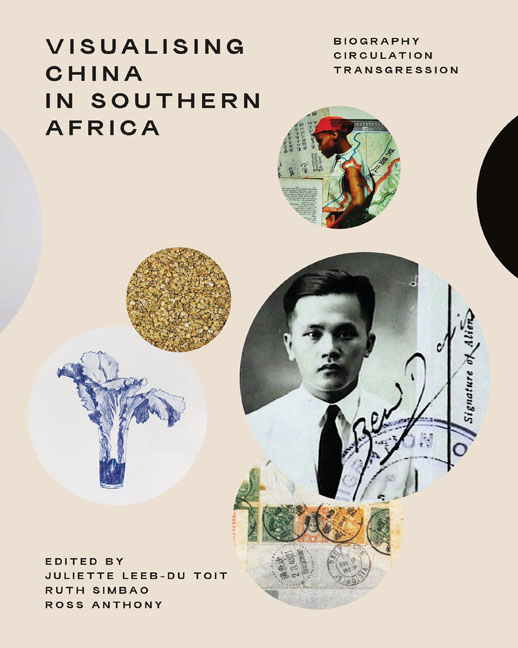1 - A Letter to My Cousin in China: Migrancy and Dilemmas of Burial
Published online by Cambridge University Press: 24 November 2023
Summary
FALLING LEAVES RETURN TO THEIR ROOTS
The film A Letter to My Cousin in China (1999) by the South African-born Chinese filmmaker Henion Han (1952–2018), traces the indirect and unplanned migration of his parents from China to South Africa in the mid-twentieth century. As a work of art, the film functions less as an official, linear family biography than as an act or process of biography that is informed by the ‘narrative worlds into which people are born’ (Rassool 2010, 30). Standing as a valuable visual creation of history alongside text-based memoirs by Chinese (Accone 2004; Chen 2009; Ho 2011) and Taiwanese (Park 2013) South Africans, this visual letter – a form of ‘life writing’ (Adams 2000) – enables us to ‘witness history from the “inside”’ (Dierks 2009, xi).
The importance of this film today, some twenty years after its making, is its ability to add meaningful texture, and thereby pose resistance to, contemporary perceptions of Chinese presence on the African continent that are often flattened in ahistorical and sensationalist ways (Simbao 2012, 2019a). In the broader China–Africa discourse that is largely driven by economics, the deep history of Chinese migration to the African continent and to South Africa in particular, is usually overlooked. Even within South Africa, the complexities of this history and the nuances stemming from different waves of migration to South Africa remain largely unknown. South Africans of Chinese descent who are ‘second-, third-, and even fourth-generation South Africans’ often feel they are treated as ‘foreigners and outsiders, despite … their long history in South Africa’ (Park 2010, 467). Entrenched anti-Chinese sentiment in South Africa continues. Historical prejudice is conflated with broader fears that so-called global (yet still predominantly white and Western) capital and power are threatened by China's economic rise. With audacious intimacy, A Letter to My Cousin in China opens up deeper knowledge about the personal, family and community experiences of Chinese South Africans. In so doing, it counters populist polemics against ‘the Chinese’.
Throughout this multigenerational biography that extends into the afterlife, there is a complex push and pull as family members are torn between the spaces of mainland China, Singapore, South Africa, Taiwan and the USA. Separation from family, home (laojia) or ancestral home (zudi) triggers acute trauma when facing decisions about where to bury the dead.
- Type
- Chapter
- Information
- Visualising China in Southern AfricaBiography, Circulation, Transgression, pp. 28 - 49Publisher: Wits University PressPrint publication year: 2023



